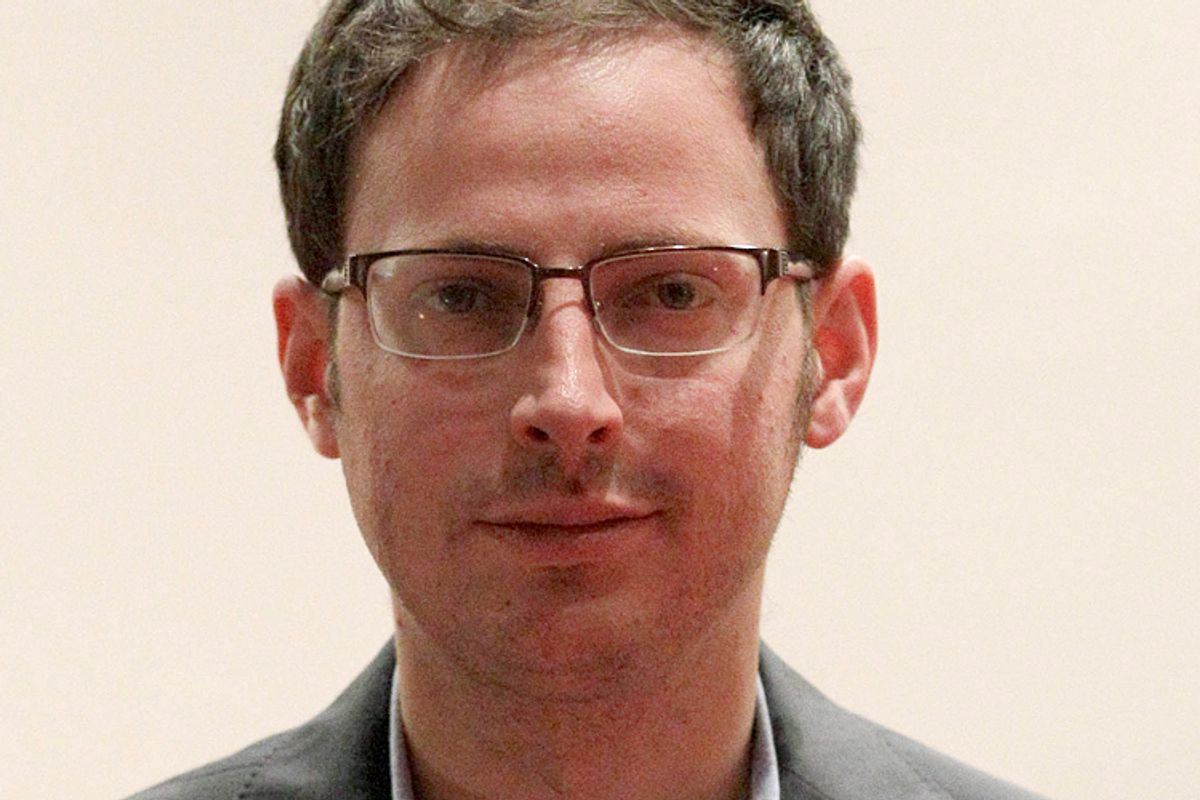When the 2012 election returns started rolling in, I think it's safe to say that a lot of conservatives were pretty embarrassed.
They had called nearly all of the public polling on the race into question, clung to whatever scraps of good news they could gather, and wedded themselves to an elaborate reimagining of the story told by the numbers. Remember this?
Of course you do. So do they. And I think a lot of the folks who bought in to the poll unskewing craze a couple of years ago desperately want liberals to dupe themselves this year, if only to distribute the shame more evenly.
So nothing could have made conservatives happier than to see Democratic Party operatives call Nate Silver's new projection, that the GOP is a slight favorite to win the Senate, into question.
[embedtweet id=447749249175138304]
Cecil's memory served him well -- if you don't believe me, click on the "Senate" tab here -- but his dismissive tone, and the dismissiveness of Democratic operatives in general unleashed the dogs of schadenfreude.
[embedtweet id=448469228950405121]
Of course, this is nothing like poll unskewing. A gentler way to make the same point is that forecasts can and do change -- not that they necessarily will -- and being the slight underdog this far out doesn't necessarily spell doom for Democrats, just like it didn't spell doom in August 2012. Elsewhere, the Democratic Senatorial Campaign Committee argued that Silver (and presumably other poll aggregators) are working with a "scarce supply of public polls" at the moment and are thus prone to producing inaccurate forecasts.
These are all objections you'd expect a political campaign committee on the wrong end of a fivethirtyeight forecast to make. But if you believe or hope that the dismissiveness on display is an early symptom of a liberal poll-unskewing craze, I need to let you down now.
I think liberals probably are (or have become) less prone to perpetuating alternative narratives, in the hope they become self-fulfilling, than conservatives. They took a turn at poll unskewing in 2004 (though not as severely or universally as conservatives did in 2012) and seem to have learned their lesson.
But even if that weren't the case, the Silverization of election forecasting has grown deep roots on the left. Major liberal political sites like TPM (my old haunt) and Huffington Post now use statistical best practices to aggregate polls, as do other smaller operations (similar to Silver's old one at the New York Times), and they all projected the outcome in 2012 just about as well or better than he did on the eve of the last election.
As long as these remain trusted liberal institutions, liberals won't be taken in easily by statistical snake oil merchants. I don't see liberals abandoning them en masse, and I can't imagine the aggregators themselves engaging in a conspiracy to falsify (er, unskew) their projections.
So I really don't see liberals contriving a false confidence in their chances this November. To the contrary, given the structural disadvantages Democrats face this cycle, I wouldn't be surprised if heavily invested liberals endure periods of deep resignation over the coming months. I would just encourage them not to get taken in by witless or opportunistic suggestions that things would be going fine for Senate Democrats this cycle were it not for the Affordable Care Act. We know that they're defending a bunch of seats in conservative states that they won in a 2008 landslide. And we know that midterm electorates have been older and whiter than presidential electorates going back decades. And while 30 years ago that didn't confer partisan advantage in either direction, the country has aged and polarized since then, and the phenomenon has evolved into a structural advantage for Republicans.
That's not to say Obamacare will have no impact. But many conservatives will try -- or are already trying -- to write these larger factors out of their 2014 analyses. And they -- not liberals -- are the ones engaging in expedient acts of unskewing.



Shares